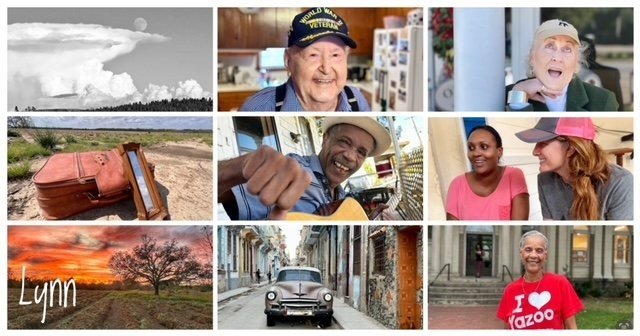From Fear to Love on Farish Street
"Farish Street was pure love, honey. You should have seen it back then."
Farish Street, one of the oldest black business districts in the country, is only blocks away from the Jackson, Mississippi that I grew up around, but I had never been to that side of town. It felt off limits. A place where I couldn't go.
Instead of the history, I knew the stories of failed revitalization plans, proposals for an entertainment district, and accusations of corruption. Talk but no action for an area recognized as one of the "Most Endangered Historic Places in the Country” by the National Trust for Historic Preservation.
I thought the name Farish Street meant failure. I was wrong.
I went to Farish Street last week after visiting the Museum Mississippi History and Mississippi Civil Rights Museum. The museums were reminders that the wall of fear and misunderstanding I grew up with was in my head and that there is no place for that wall today. Regardless, getting out of my car on Farish Street still felt taboo.
Faded signs saying "Home Dinning Room," "Brown Circle," and "Palace Auditorium" turned forbidden into familiar. Even in blocks of vacant buildings with collapsed roofs, chained up doors and vines growing in broken windows, it was easy to feel the history and importance of what it once was. Farish Street became about people and place. Not prejudice.
On a street once filled with grocery and furniture stores, restaurants, theaters, and shops that sold peanuts and ice cream, all that remains are Dennis Brothers Shoe Shop and Big Apple Inn. I walked in the open door of the shoe store searching for the stories that would bring Farish Street to life. A man introduced himself as Dr. Shumaker, pointed to the sign on top of the machine that still sells Cokes in bottles, and told me to read that, first.
"Good morning. This is God. I will be handling all of your problems today so have a good day."
Shumaker reads that sign every morning when he walks in the store his grandfather opened in 1938. Rows of wingtips still look sharp but business isn't what it used to be. He hangs on, proud to be his own boss and make his own hours the same way his father and grandfather did. He started working there in 1967 when he was 10 years old. He shined shoes at his stand next to the window and watched people walk by.
"1967 was a beautiful time on Farish Street," he says. "There wasn't an empty building on the whole street and partying went down for blocks on Saturday nights. Behind us was Young's alley with saloons in the houses. The old folks would play blackjack and Russian roulette. Everyone had a job. Minimum wage was about $1.80 but you could always buy something for a penny."
Lines for the Alamo Theatre and Palace Auditorium wrapped down the block and around the corner, and he had to walk in the middle of the street to get to the store. People were bused in from Brookhaven, Canton, Pelahatchie and Copiah.
"It cost 25 cents to come over here. We called a quarter two bits."
They came to see movies or Count Basie, Nat King Cole, Dinah Washington. Cab Calloway, and BB King. Photographs show streets filled with women in hats and heels and men in three-piece suits.
Shumaker says if black men bought those suits on any other street in Jackson, the store wouldn't let them in the fitting room to try them on. If the suit didn't fit just right, Mr. Johnson, a tailor on Farish Street, would alter it and have it ready the same day.
"We walked through the front door at any store down here. Straight through the front door," Shumaker says. "Some of the businesses were owned by whites, Italians and Jews, but there was dignity and respect and no sign said 'colored.' It was beautiful."
He says people took care of each other on Farish Street. Ms. Peaches had the cafe next door. She could read his mind when he was hungry, and she fed him. Peaches Restaurant closed four years ago when Ms. Peaches had triple bypass surgery and her son could not care for her and the restaurant. Beyond the sign that says "Peaches Restaurant Since 1961" is a diner with ceiling tiles falling in and a clock on the wall stopped at 11:40. But the teal booths with napkin holders and salt and pepper shakers on the table are still waiting for customers to take a seat.
Shumaker says people stopped coming to Farish Street about 1982, when integration, malls and suburbs left Farish Street behind. He is losing hope about for revitalization and is angry about drugs, guns and crime coming into neighborhoods that have fallen apart.
"Last year I turned three scores. Today young men don't make it to 19 or 25. All of these changes are hard to take but the good Lord still has me here and I will be here as long as I have breath."
Shoemaker knows he has to keep his door open and tell the stories to keep a little part of Farish Street alive.
"People forget all of the good things that happened on Farish Street. There was so much love. This street should never fade away."
A forgotten street built with pure love can still break down an internal wall raised by fear.






